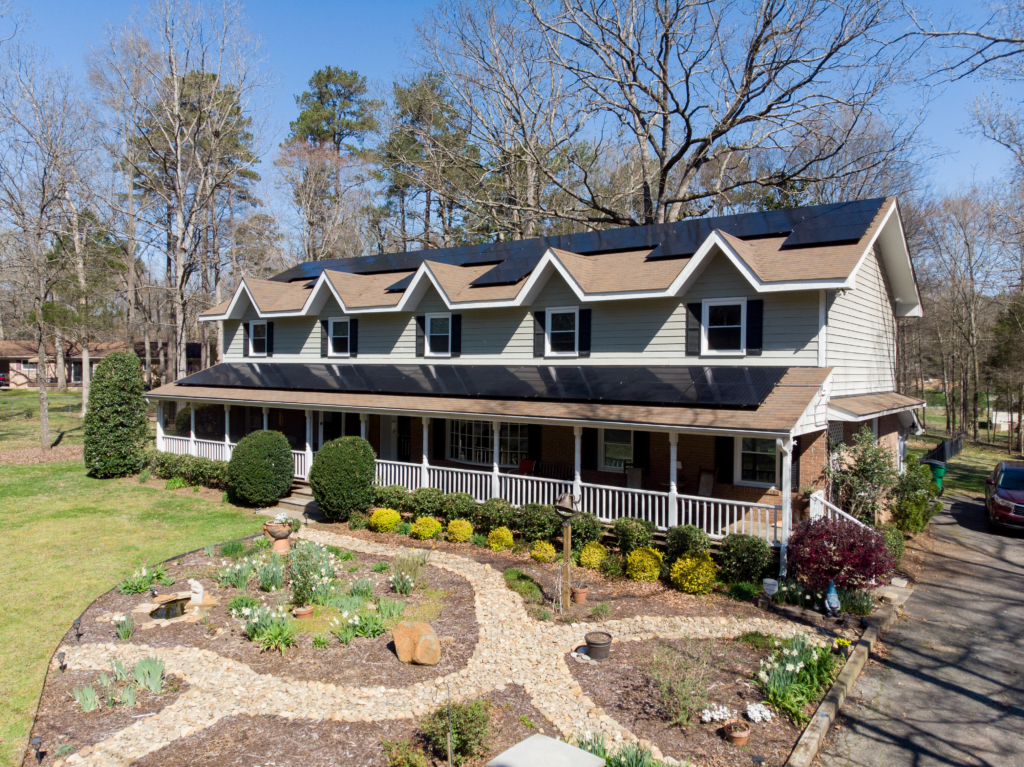Solar PV
Solar PV for Residential and Commercial Properties
Solar PV for your home (Photovoltaic ) has seen rapid growth across the Carolinas’ for both businessess and homeowners. You don’t have to be an expert – we have the experience to help you start your journey toward energy independence. After all: Everyone that goes solar starts at the same first step, which is to talk with a local solar consultant about your building – whether a home or business – that could use solar energy and discuss your unique energy use patterns to get a detailed look at what solar does for you.
How Solar Panels Work for Homes
- Residential solar panels are designed to fit within a home’s existing roof space or landscape layout. Once installed, solar systems immediately start working, collecting sunlight and transforming it into usable electricity. To better understand the process, here’s an overview of how most residential solar systems work:
- Solar panels for home consumers begin absorbing sunlight
- Photovoltaic cells (PV) to convert sun rays into energy
- Extra energy is either sent back to the grid or stored in storage batteries.
Choose And Control Your Home Energy with Solar PV
- A no pressure and collaborative energy consultation
- Expert solar consultation including a Photo-voltaic layout customized for your home’s specific location and conditions.
- Quality installation completed by our employees, experts in solar installations for over 10 years
- Full manufacturer’s warranty (up to 25 years) on critical solar components – solar panels, inverters, and racking
- Completion of all paperwork from permitting to the integration of your utility
- We are committed to making your transition to ‘go solar’ a smooth and enjoyable process from our first communication to the energization of your new solar system …and beyond!
Get started today with an introductory call to our energy consultants today and find out why it’s never been a better time to consider solar PV for your home.

Frequently Asked Questions About Something:
How exactly does going solar and a solar system itself work?
How many solar panels do I need for my home?
Roof-size/available space: When we look at the size of your roof and the space available, we gather data that tell us the maximum number of solar panels your home or site can hold and we even consider shading. We use a software “Suneye” which takes a 360 picture of your roof and we use this photo to determine if your home is a good candidate for solar.
Energy Usage: When we determine energy usage we look at your past electrical bills from over the course of a year to make sure your system isn’t too big or too small.
Your Budget: We take your budget seriously and most importantly, we want you to be satisfied with our services. We take your feedback on how much you want to spend so that we can size your system appropriately.
What is solar net-metering?
Does Duke Energy offer net-metering?
Curious about the cost of a home solar system?
Ready to Own Your Own Energy?
Speak to Us Today!
